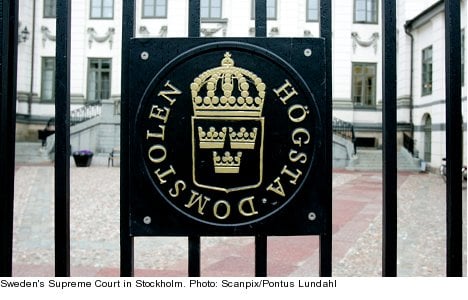The move follows an earlier Supreme Court decision in June, which ruled anyone who has already been issued a fine for tax evasion cannot then be prosecuted for the same offence.
In Sweden, fines and prosecution are tried by two separate procedures, a system that has been prohibited by both the European Convention and the EU Charter of Fundamental Rights since 2009.
Tuesday’s ruling added that the prohibition of this so-called dual punishment in Sweden would apply retroactively, as of February 2009.
Leif Gustafsson, a lawyer who has had several clients imprisoned for tax evasion offences, was pleased with the outcome.
“It was predicted and for a lawyer, it is satisfactory,” he told news agency TT.
Anne Ramberg, general secretary of The Swedish Bar Association (Advokatsamfundet) also welcomed the ruling.
“It is important that the Supreme Court has clarified this. This is another example where legislation should have been drafted in,” she said, adding that the government and parliament should have aligned Swedish law with the European Court back in 2009.
“If legislators are not doing their job then the Supreme Court must do it for them.”
However, the decision has been labelled a “spectacular scandal” for the government by Morgan Johansson, Social Democrat MP and spokesperson on justice and legal policy.
“This was the worst thing that could have happened. It means serious criminals, even those linked to organized crime, can have their convictions overturned and in the worse case can be both released from prison and receive damages.”
Since the initial June ruling, thirty people are reported to have appealed to have convictions quashed according to the Dagens Nyheter (DN) daily. A further 12 people have been released from jail until further notice.
The Local/cd



 Please whitelist us to continue reading.
Please whitelist us to continue reading.
Member comments